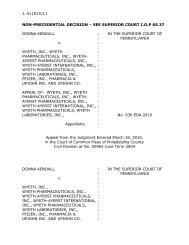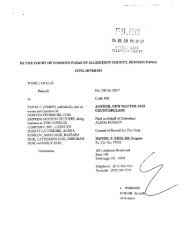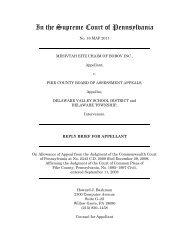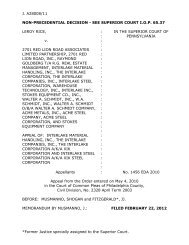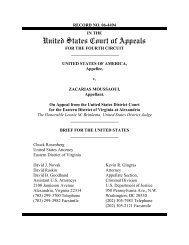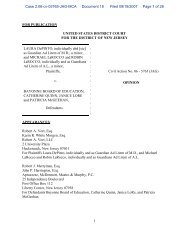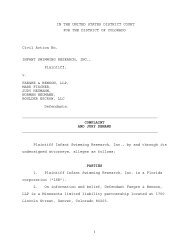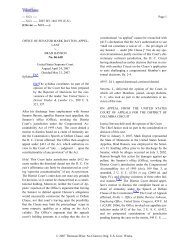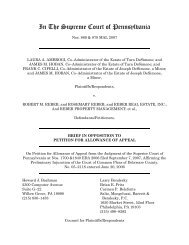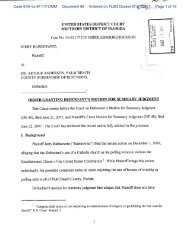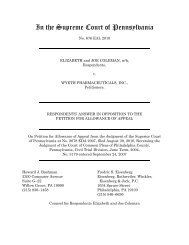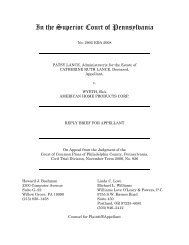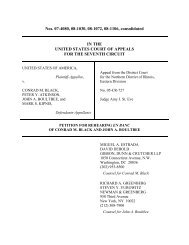Stone v. Bear, Stearns & Co., Inc. - How Appealing
Stone v. Bear, Stearns & Co., Inc. - How Appealing
Stone v. Bear, Stearns & Co., Inc. - How Appealing
Create successful ePaper yourself
Turn your PDF publications into a flip-book with our unique Google optimized e-Paper software.
Case 2:11-cv-05118-LDD Document 22 Filed 05/29/12 Page 20 of 35<br />
complains that Marston failed in her FINRA-mandated ongoing duty to disclose by stating that she<br />
had nothing to add to her disclosures at the beginning of each arbitration session. Assuming this is<br />
factually true, Marston’s shortcomings still do not warrant vacatur. Remember, the FAA permits<br />
vacatur only in narrow circumstances such as “evident partiality,” not for mere “failure to disclose”<br />
or “FINRA rule infractions.” See, e.g., Scandinavian Reinsurance, 668 F.3d at 76-77 n.22 (declaring<br />
that “[e]ven where an arbitrator fails to abide by arbitral or ethical rules concerning disclosure, such a<br />
failure does not, in itself, entitle a losing party to vacatur.”) (citing Positive Software Solutions, 476<br />
F.3d at 285 n.5; Montez v. Prudential Sec., <strong>Inc</strong>., 260 F.3d 980, 984 (8th Cir. 2001); ANR <strong>Co</strong>al <strong>Co</strong>.,<br />
173 F.3d at 499; Leatherby, 714 F.2d at 680-81).<br />
We also point out that a reasonable person could very well believe that Dr. Marston’s<br />
business background, if imputed to his wife as <strong>Stone</strong> would have us do, might actually inure to<br />
<strong>Stone</strong>’s benefit. For example, J.P. Morgan apparently “fired” <strong>Stone</strong> in the late 1990's. That might<br />
lead one to wonder whether Dr. Marston, and by implication arbitrator Marston, held some sort of<br />
grudge against J.P. Morgan. Additionally, Dr. Marston advises high-net-worth investors, so perhaps<br />
the Marstons would sympathize with an individual such as <strong>Stone</strong>, himself a high-net-worth investor<br />
who lost a significant amount of money (or so a reasonable person might believe). Finally, <strong>Stone</strong><br />
testified that he perceived no bias from Marston during the arbitration process itself. All of this cuts<br />
against a finding of “evident partiality.”<br />
In the end, <strong>Stone</strong> has not met his heavy burden of proving that a reasonable person would<br />
have to believe that Marston was partial to Respondents. Kaplan, 19 F.3d at 1523 n.30. We simply<br />
see no circumstances powerfully suggestive of anti-<strong>Stone</strong> or pro-Respondent bias. Id. Therefore,<br />
Section 10(a)(2)’s “evident partiality” provision does not permit vacatur in this case.<br />
20



